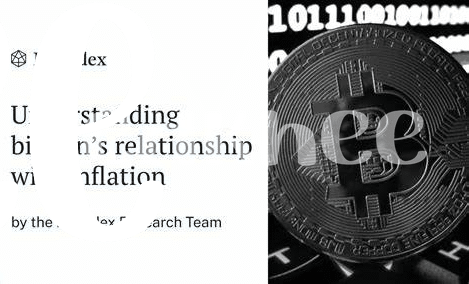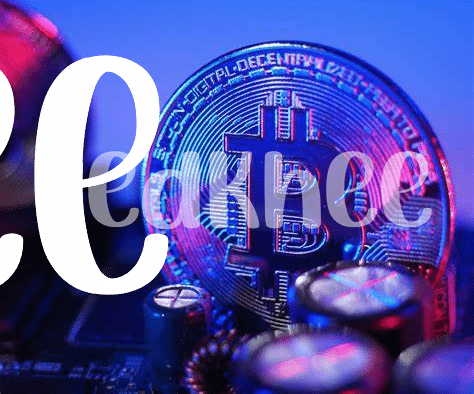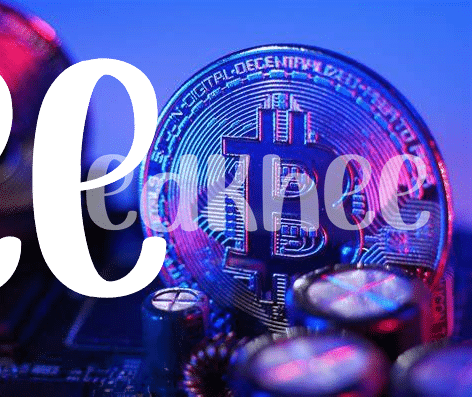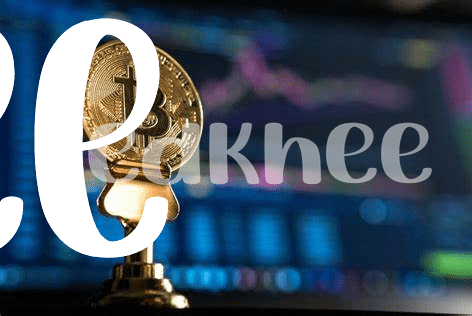What Is Bitcoin, Really? 🌐

Imagine a world where your money lives on a vast network of computers, buzzing and whirring as they solve complex puzzles to keep your assets secure. That’s the digital universe where Bitcoin resides. Born from the idea that money should be as free and borderless as the internet itself, Bitcoin emerged as a new form of money that you can send to anyone, anywhere, without needing a bank in the middle. Unlike traditional money, which is printed by governments and can become less valuable if too much is printed (think about when you hear prices going up), Bitcoin is like digital gold. There’s only ever going to be 21 million Bitcoins; no more can ever be created, making it unique in the world of money. This scarcity is a part of what makes some people view Bitcoin as a modern-day treasure, shining bright in the digital age.
| Feature | Description |
|---|---|
| Decentralized | No single entity controls Bitcoin. It’s like a community garden where everyone chips in to take care of it. |
| Limited Supply | With only 21 million coins ever to be created, Bitcoin is like digital real estate—finite and potentially valuable. |
| Peer to Peer | You can send Bitcoin directly to someone else, no banks needed, like handing over cash in the digital world. |
The Rollercoaster of Inflation Explained 🎢
Imagine going to the store with a piggy bank full of savings, ready to buy your favorite chocolate bar. But by the time you get there, the price has doubled. This isn’t a scene from a monopoly game; it’s what happens during inflation. Your money buys less than it did before because the value of the currency drops. This is like being on a rollercoaster, where your purchasing power goes up and down, but mostly, it feels like it’s plummeting downhill. Now, imagine experiencing this not just with chocolate bars, but with almost everything you need or want to buy.
In trying to understand how this happens, picture a country’s economy as a giant machine that needs to be balanced. If too much money is printed or if people lose faith in this machine, the balance tips, and the value of the money falls. That’s when you hear people saying that “money doesn’t buy as much as it used to.” This is a simple way to look at the complex issue of inflation, which affects how much your money is worth in the world market. For more in-depth exploration, especially on alternatives like Bitcoin, check out this analysis on https://wikicrypto.news/preparing-for-a-bitcoin-fork-security-tips-for-holders. It’s a whirlwind ride through the ups and downs of currency value, making it essential to understand how your financial safety net might be affected.
History Speaks: Bitcoin Vs. Inflation Times ⏳

When looking back at the ups and downs of Bitcoin, we see a unique story unfold, especially during times when the value of money seemed to melt away like ice cream on a hot day. Picture this: as prices for everything from bread to rent went up, many folks started looking at Bitcoin not just as digital “play money” but as a potential lifeboat in a stormy sea of rising costs. Historically speaking, there have been moments where Bitcoin’s value shot up significantly during periods of high inflation. This has led some to wonder if it could serve as a modern-day fortress against the eroding value of traditional money.
However, it’s not all smooth sailing. The journey of Bitcoin through various economic climates hasn’t always been upward. There have been times when, despite inflation biting at people’s wallets, Bitcoin decided to take its own path—sometimes losing value. These fluctuations remind us that while Bitcoin presents a fascinating option during times of financial uncertainty, it dances to its own tune 🎶. The key takeaway? History has shown Bitcoin to be both a hero in shining armor and a wild stallion, hard to predict and impossible to tame 🐎.
Bitcoin: Your Digital Safe Box? 🔐

Imagine a place where you could keep your money secure, free from the unpredictable waves of price increases that make your hard-earned cash worth less over time. That’s what many people see in Bitcoin – a kind of digital treasure chest. Unlike traditional banks where your money sits, potentially losing value as prices climb, Bitcoin operates on a digital ledger that’s spread across countless computers worldwide. This setup not only makes it tough for any single entity to control or manipulate but also introduces a level of transparency and security that’s hard to find in conventional financial systems. Sure, the idea of turning your virtual coins into a fortress against inflation sounds appealing, but it’s not as straightforward as locking your valuables in a safe. For a deeper understanding of what makes Bitcoin tick and how secure it really is, take a glance at bitcoin myths debunked security concerns. It’s important to peel back the layers and see not just the potential of Bitcoin as an inflation hedge but also to recognize the complexities and challenges it holds.
The Risks of Choosing Bitcoin as a Shield 🛡️
While many flock to Bitcoin in hopes of protecting their wealth from the hungry jaws of inflation 🎢, it’s essential to recognize the turbulence that can accompany it. Unlike traditional banks or physical investments, the digital world of Bitcoin is volatile; its value dances to the beat of supply and demand, influenced by market sentiment, regulatory news, and technological advancements. This unpredictability can lead to sleepless nights, as the value of your digital safety box 🔐 may swing wildly within hours.
Here is a quick glance at the ups and downs of relying on Bitcoin:
| Pros of Bitcoin | Cons of Bitcoin |
|---|---|
| 🚀 Potential for high returns | 🎢 Price volatility |
| 🔐 Decentralized nature | ⚠️ Regulatory uncertainty |
| 🌍 Global accessibility | 💔 Vulnerability to theft and fraud |
As much as it’s portrayed as a modern ark against the flood of devaluing currencies, it carries its own set of risks. The digital realm is fraught with tales of hacked wallets and lost fortunes 🛡️, underscoring the importance of understanding and managing these risks before setting sail on the cryptocurrency sea.
Beyond Bitcoin: Other Inflation Havens? 🚀

As we navigate the choppy waters of economic uncertainty, it’s vital to explore harbors safe from the storm of inflation, beyond the familiar shores of Bitcoin. Much like a treasure map leads to hidden gems, diversifying your investment portfolio can uncover other valuable inflation havens. Think of precious metals like gold and silver, whose shine doesn’t dim even when inflation tries to cast a shadow. Then, there’s real estate, a tangible asset that often appreciates over time, providing not just a roof over your head but a sturdy shelter against inflation’s impact. Government bonds, especially those indexed to inflation, offer a somewhat safe passage, ensuring your investment grows in tandem with or exceeds inflation rates. However, the modern adventurer in the economic landscape might turn to cryptocurrencies’ dynamic world, seeking alternatives to Bitcoin. Here, the plot thickens with bitcoin forks and their impact security concerns. Forks in the Bitcoin blockchain have introduced new currencies like Bitcoin Cash and Bitcoin Gold, expanding the digital horizon but also weaving in complexities around security. These new digital frontiers carry their own set of challenges and rewards, making it essential for navigators of this virtual world to be well-equipped, understanding the risks and opportunities that lie beyond the Bitcoin realm. 🗺️🔍💡
